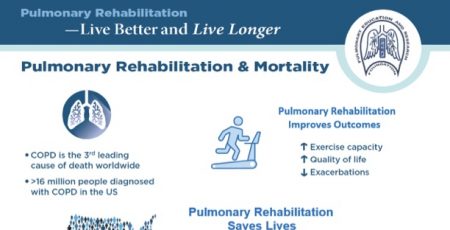02 Feb The Importance of Spirometry Testing in COPD Diagnosis
COPD is one of the most common conditions treated by primary care clinicians, yet there is a need for better training related to the diagnosis of the disease. Spirometry could play an important role in the process.
In a study conducted at the Corpus Christi Medical Center in Corpus Christi, Texas, researchers assessed the accuracy of COPD diagnoses made in primary care clinics. Of the 65 patient records reviewed, only 29% of the records showed that spirometry testing had been done. Subsequent spirometry testing showed that, of the patients diagnosed by their physicians with COPD, nearly 32% were actually misclassified because the spirometric measurements did not confirm the disease.
The Global Initiative for Chronic Obstructive Lung Disease (GOLD) recommends that when any patient has a history of chronic cough, sputum production, difficulty breathing, or exposure to risk factors (e.g., cigarette smoking), spirometry should be performed to establish a diagnosis of COPD.
Dr. Stephen Eikermann, lead researcher of the study, states, “GOLD guidelines provide clear standards on which patients to evaluate with and how to perform and interpret the tests. Applying the updated guidelines in primary care will greatly improve the rate and accuracy of diagnosis, the first step toward proper treatment.”
Not only is misdiagnosis of concern to patients, it is of concern to the hospitals that treat them, because of the COPD readmission penalty, a provision of the Hospital Readmission Reduction Program (HRRP) that was established by the Affordable Care Act to improve quality of care and reduce hospital spending. HRRP penalizes hospitals for “excessive” readmissions rates for common medical conditions. The Centers for Medicare & Medicaid Services (CMS) calculates hospital risk-adjusted readmission rates for these conditions and penalizes hospitals above the national average up to 3% of their total Medicare reimbursement. In 2015, the CMS added COPD to the list of penalized conditions. Approximately 1,400 hospitals are automatically exempt from this rule (those that train residents or treat veterans, children and psychiatric patients or large numbers of low-income patients, among other qualifying factors). Recent data demonstrate that hospitals caring for medically complex and socially vulnerable populations are disproportionately penalized under the HRRP. Misdiagnoses of COPD add to hospitals’ financial risks when readmitting patients suffering from acute medical conditions.
The authors of the study recommend that education in the use of spirometry to accurately diagnose COPD is needed at multiple levels – and a software application to improve compliance and patient care could be very beneficial.
Information for this article was obtained from RT Magazine and the CHEST Journal, and the American Journal of Respiratory and Critical Care Medicine, and Kaiser Health News.





Pingback:PERF Monthly Newsletter – February 2017 | PERF 2nd Wind Blog
Posted at 16:31h, 01 March[…] …Read more […]